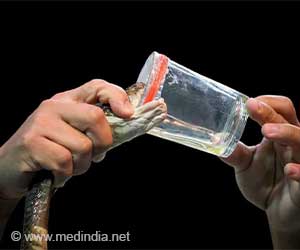China's Health Minister Chen Zhu is seeking respect due traditional Chinese medicine (TCM).
China's Health Minister Chen Zhu is seeking respect traditional Chinese medicine (TCM).
"A prudent scientist should not judge TCM in haste if he does not understand its meaning, advantage and core theories," Chen, a Paris-trained hematology scientist urged at a health forum held in Beijing Monday.Chen's remarks came amid continuing debate about the value and efficacy of medicinal practices of TCM, which go back thousands of years, and are rooted deeply in Chinese culture.
Long before the start of modern medical science, the Chinese had developed complex theories about the treatment of illnesses. The first Chinese medical classic - The Yellow Emperor's Canon of Medicine - dates back to between 403 BC and 221 BC.
Remedies made from natural ingredients, such as wild plants and animal parts and simple tools such as acupuncture needles were the tools of TCM doctors.
But came the mid-19th century, and TCM declined due to the growing popularity of western medicine. TCM was even officially banned for a time under the rule of the Kuomintang Party.
After the founding of the people's republic of China, TCM was resuscitated and developed alongside western medicine. Today, about 3,000 hospitals in China provide TCM treatments to nearly 234 million patients annually.
The proposal from Zhang Gongyao, a professor with Central South University, attracted strong opposition from the Ministry of Health. A spokesman was quoted: "TCM is an inseparable and important component of China's health sector."
While Minister Chen acknowledges that TCM needs to improve itself and move along with the times, he stresses that cultural differences mean that TCM is very different from western medicine. "Experience and instinct served as key cognition methods in oriental culture, but in the west, people relied more on experiment and reasoning”, he commented.
Chen illustrated his point with a comparison between classic western still-life oil painting and traditional Chinese landscape painting. He explained that while western medicine focused more on clear details of the components, TCM tended to present a vague picture of the whole.
However, in spite of the differences, the minister says that the two medical theories also share many similarities in basic concepts. "TCM believes in the harmony of man with nature, which is pretty similar to western theories of the relations between health and environment; TCM emphasizes that diagnosis and treatment should be based on an overall analysis of the illness and the patient's condition, while in western medicine, pharmacogenetics (the study of how genes affect the way people respond to medicines) is used to find the most effective remedies for patients..."
Chen pointed out that the high level of specialization within western medicine had "fragmentized" the whole medical system and the treatment procedure.
"Almost all the complicated diseases are affected by multiple factors... Under the fragmented diagnosis and treatment system, we've lost many chances for simple remedy and early intervention”, he opined.
The minister urged scientists to break the block between TCM and western medicine so as to develop a new medical science of the 21st century, which could incorporate the advantages of the two medicines.
"If the core concepts of TCM, such as the holistic view, preventative approach and treatment based on patients' conditions, could be further studied and developed, TCM is likely to have a far-reaching impact on the modern medical system, medical policy, pharmaceutical industry and even the whole economic sector," Chen added.
Source-Medindia
ANN/V
 MEDINDIA
MEDINDIA
 Email
Email





